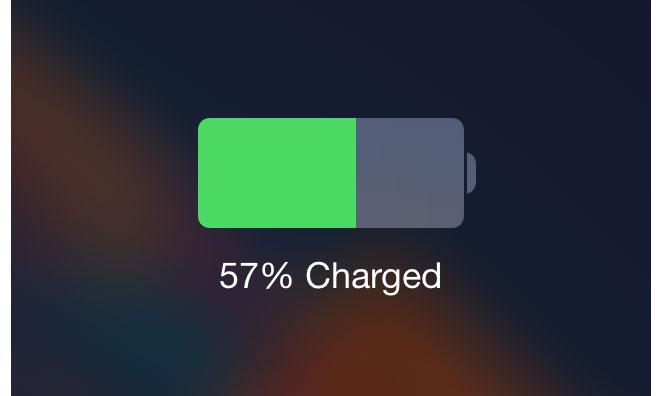iPhone owners may be able to go even longer between charges in the future, thanks to a new power management system Apple is exploring that would learn users' habits and dynamically adjust the handset's performance.
The system was revealed Thursday in an Apple patent application filed with the U.S. Patent and Trademark Office and discovered by AppleInsider. Entitled "Inferring User Intent From Battery Usage Level and Charging Trends," the patent details a method in which a mobile device would monitor the charge and discharge cycles of its battery and use that information to predict what the user will be doing at any given time.
Using those predictions, the device could then alter various parameters - like screen brightness or the CPU clock speed — to either conserve battery life or deliver maximum processing power:
One area of focus is instantaneous and long term power budgeting. At any given time the information from the heuristics indicates how best to allocate the limited power budget (limited by power supply design or the device's thermal capability) between the various devices. One could imagine the user being happy with a slightly darker screen when in a dark room if it means that more power can be given to the GPU and the performance of the game increased. Long term power budgeting is concerned with ensuring that the device's power usage over time does not deplete the battery and interrupt the user.
To further refine the power management process, Apple imagines taking into account ambient data from the device's gyroscope, light sensor, geographic location, and wireless networking stack. These would be used to build an even more detailed profile, allowing the device to respond more quickly to sudden changes in behavior.
Finally, Apple could also analyze the applications the user is interacting with:
Another example could be using an eWallet application such as Passbook to purchase a drink at a coffee house. This coupled with GPS location largely staying the same would suggest that the user will be enjoying their drink in the coffee house for the next 20 to 30 minutes. If they should be using their device in that time period they are likely to be doing so intently, (reading the news, playing a game, etc.), such that they would like their device to be particularly responsive. This sort of information could tell the power management system that for the next 20-30 minutes it is in the user's best interest to sacrifice some battery life in favor of improved performance.
Apple credits Joshua P. De Cesare and Gaurav Kapoor for the invention of U.S. Patent Application No. 20140082384.
 AppleInsider Staff
AppleInsider Staff




-xl-m.jpg)


-m.jpg)






 Chip Loder
Chip Loder
 Thomas Sibilly
Thomas Sibilly
 Wesley Hilliard
Wesley Hilliard
 Christine McKee
Christine McKee
 Amber Neely
Amber Neely
 William Gallagher
William Gallagher
 Malcolm Owen
Malcolm Owen








14 Comments
Not to mention which App to give power to and temporarily stop other processes, at particular times.
Most likely this is already in use, they talked about this with Maverick
[quote name="Maestro64" url="/t/167007/apples-smart-iphone-power-management-system-would-track-trends-to-boost-battery-life#post_2493215"]Most likely this is already in use, they talked about this with Maverick[/quote] Wasn't that a more efficient ways to use the processor in spurts to maximize power use?
How typical of today's patent applications. There's much mention of self-evident, beneficial results that should never be patentable coupled with mere arm-waving about how it would be done. Saying it'll be done with software says nothing. We need to go back to how patents used to be issued. You had to bring in a working model and what you patented only covered how that particular device worked. You could not patent merely the idea of lighting a room with electricity. You could only patent one way of doing it, say a bamboo fiber in a glass bulb from which all the air had been removed. It also used to be a matter of honor not to do certain things even though they were legal. But as C. S. Lewis wrote in The Abolition of Man, any sense of honor seems to have departed our society, leaving only the pursuit of money, fame or popularity. In this case its the dishonor of patenting mere doodles.
So you’re either preventing thousands of inventors from being rewarded for their ideas at all or forcing them to be on the payroll of patent troll companies who give them a fraction of the compensation they deserve.
That’s fine, though.